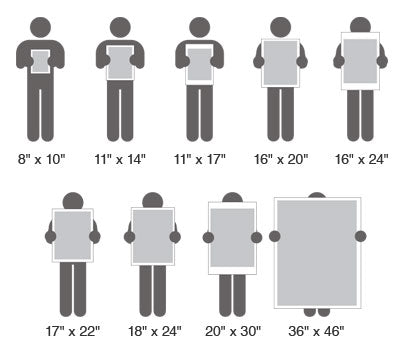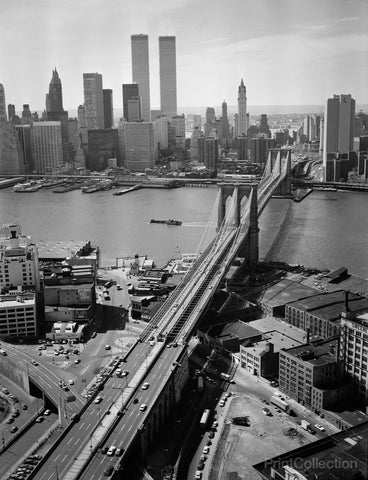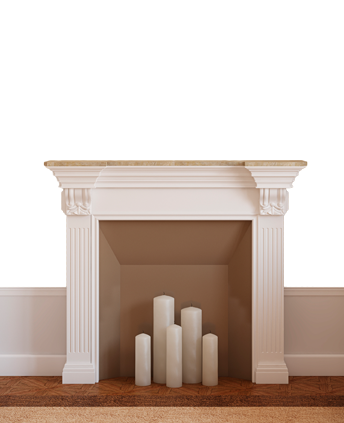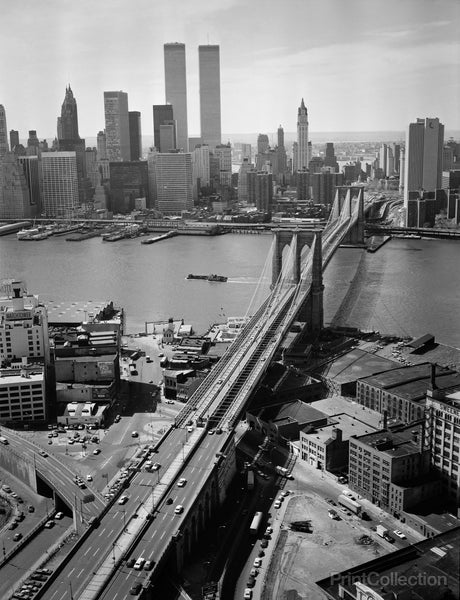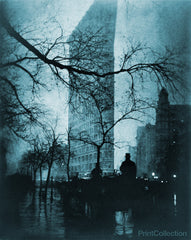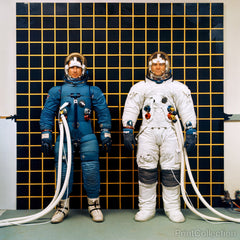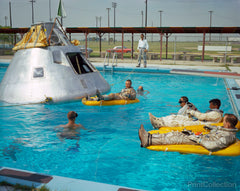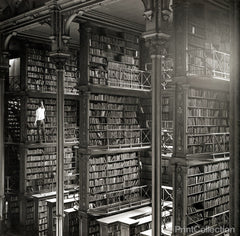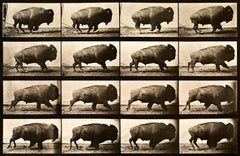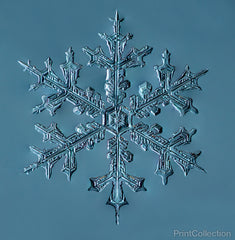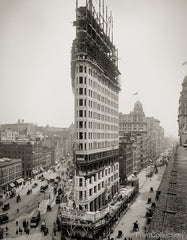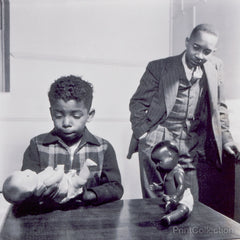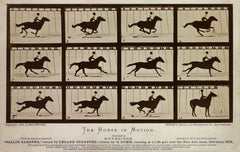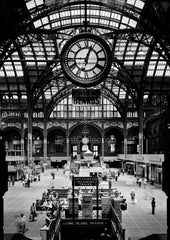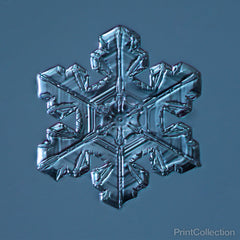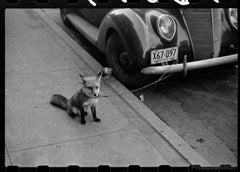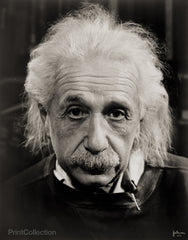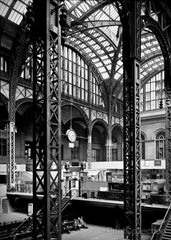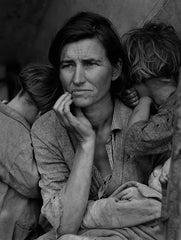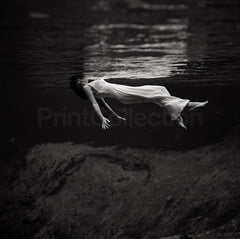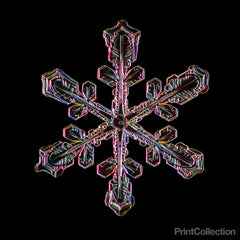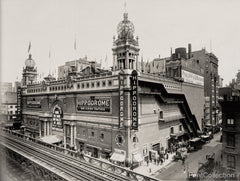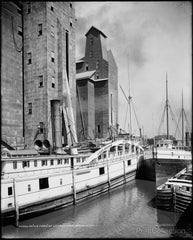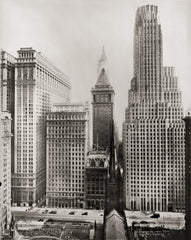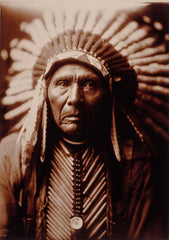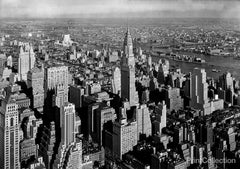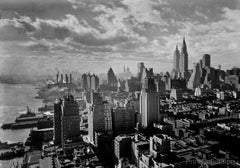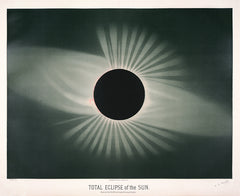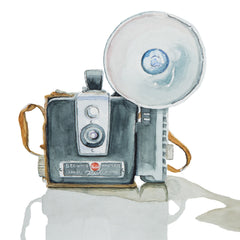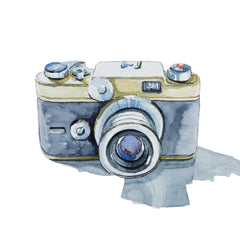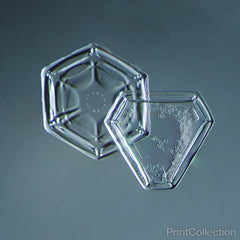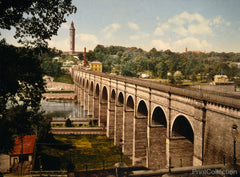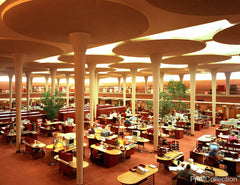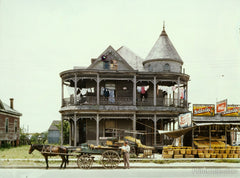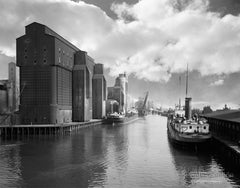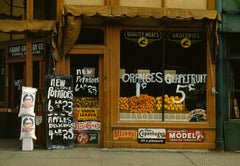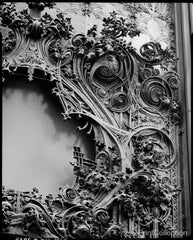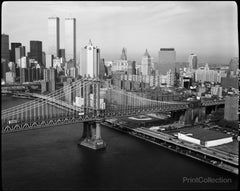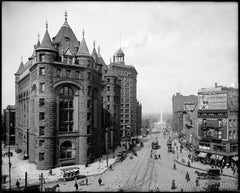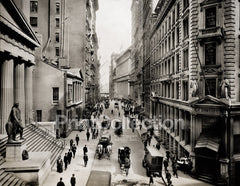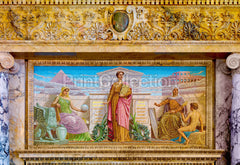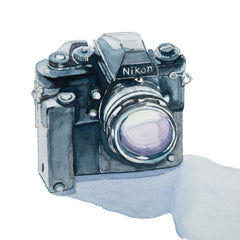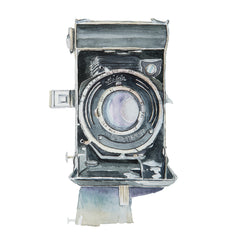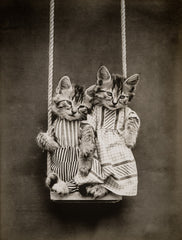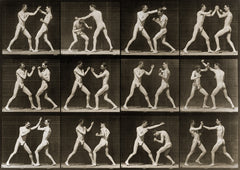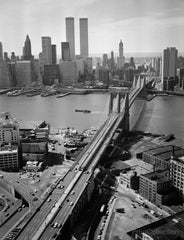Brooklyn Bridge, Spanning East River, Aerial
Brooklyn Bridge, Spanning East River between Park Row, Manhattan and Sands Street, Brooklyn, New York, New York, NY. Photographed by Jack Boucher on 4x5 film for HAER.
Related Names: John Roebling, Washington A. RoeblingBuilding/structure dates: 1869 initial constructionBuilding/structure dates: 1953 subsequent workNational Register of Historic Places NRIS Number: 66000523Significance: At the time of its opening on May 24, 1883, the Brooklyn Bridge was the longest spanning bridge in the world. It represents the culmination of nearly a lifetime's experience designing and building suspension structures and incorporates the pinnacle of development of design features conceived by John A. Roebling during this period. The Roebling system of suspension bridge construction became the standard for suspension bridges throughout the world. These features included the anchoring system composed of a cast-iron plate buried under masonry to which anchorage chain eyebar links were attached and rose in the curve of a quadrant, the upper ends to which were pinned the looped ends of wire cables; the method of constructing the cables where individual parallel wires were "air spun," consolidated, and wrapped with wire into a solid, cylindrical mass; the diagonal stay cables, radiating from the tower tops down to the deck, a secondary structural feature that gave partial support to the deck and also stabilized the superstructure and cable system against vertical movement in severe winds. The cables were also innovative because it was the first time that steel wire, galvanized to protect against corrosion, was used in a bridge, and the second time that rolled-steel structural sections were used in a bridge superstructure. View looking NW towards Manhattan. Jack Boucher, photographer, 1978.
Great care has been taken to reproduce this image for you. We stand behind the quality of your print with a 100% customer satisfaction guarantee.
